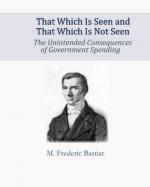|
This section contains 3,325 words (approx. 12 pages at 300 words per page) |

|
Human activities often produce consequences very different from those intended. Indeed this is a theme of classical tragedy and much premodern argument about the indeterminacy of human affairs. Sociologist Robert K. Merton was one of the first to subject "The Unanticipated Consequences of Purposeful Action" (1936) to systematic analysis, noting the influences of the need to act in spite of uncertainties, the allocation of scarce resources such as time and energy, and how personal interests shape perspectives and decisions. Advances in science and technology seem particularly likely to change the world in unanticipated ways. Innovations are by definition something new and are likely to involve unknowns. Innovations may be used in unplanned ways that trigger surprising results. The more complex a system, the harder it is to anticipate its effects. Unintended consequences can shift the cost-benefit analysis of a new technology, theory, or policy; distribute costs and...
|
This section contains 3,325 words (approx. 12 pages at 300 words per page) |

|


